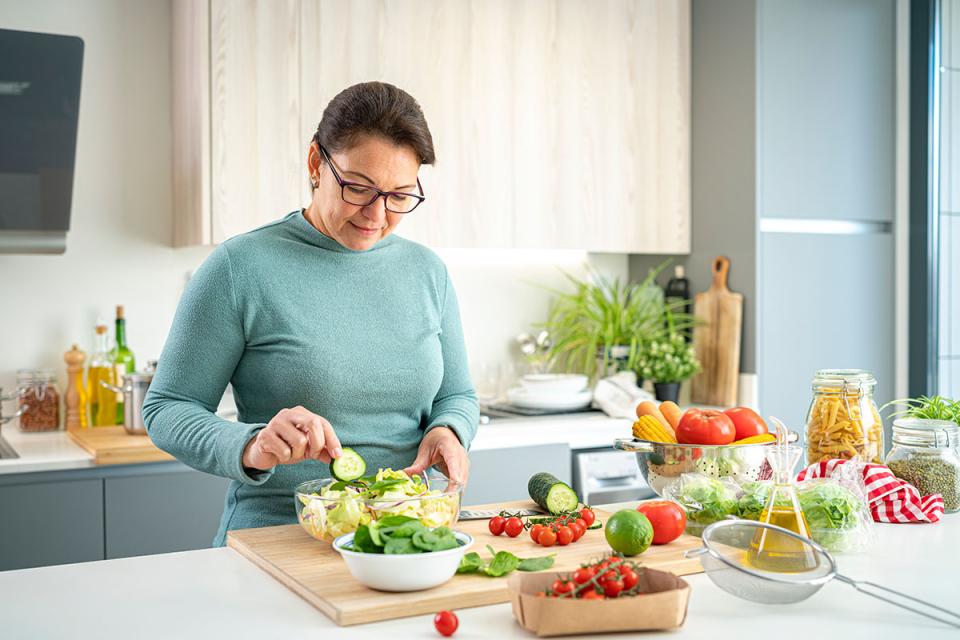Other foods to try
- Healthy fats and nuts: Avocado, olives, avocado oil, olive oil, almonds, walnuts, pecans
- Chocolate: Dark chocolate, at least 70% cocoa content
- Whole grains and legumes: Oatmeal, brown rice, wild rice, farro, quinoa, lentils and dried beans (black beans, pinto beans, kidney beans)
- Fatty fish: Salmon, tuna, sardines, herring, mackerel and anchovies
"Foods like turkey, chicken, fish, eggs and low-fat dairy can help you maintain your body and muscle mass," says Terri.
Spices
Certain spices can help with reducing nausea or inflammation, including:
- Reduces inflammation
- Turmeric
- Cinnamon
- Garlic
- Black pepper
- Cardamom
- Rosemary
- Reduces nausea
- Ginger
Limit or avoid
- Alcohol: Adds excess calories, stresses the liver, contributes to inflammation and may increase gut permeability (leaky gut)
- Sugary beverages: High-fructose corn syrup or sugar-sweetened beverages, sodas, fruit juices or drinks
- Refined/processed carbohydrates: White bread, white pasta, white rice, white flour and white sugar
- Desserts: Cookies, candy, cake, pastries, ice cream and frozen desserts
- Red and processed meats: Hot dogs, cold cuts and sausages
- Solid fats: Butter, margarine, shortening and lard
- Fried foods: French fries, breaded fried foods, fast food
HonorHealth offers nutritional counseling for cancer patients. To make an appointment with a board-certified cancer dietitian, call 480-882-4703.
